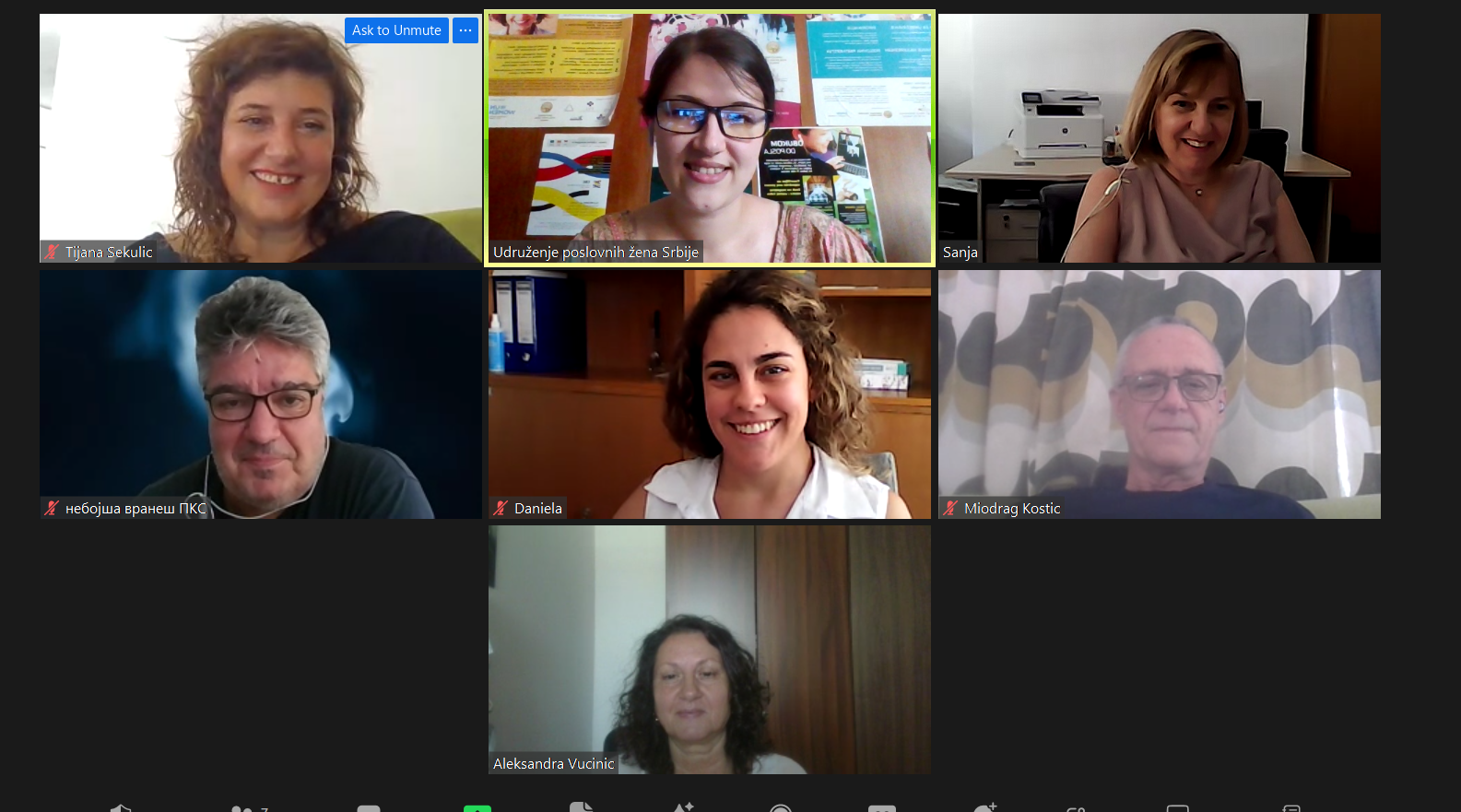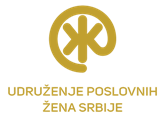Nel 1995, l’attività privata della famiglia ha introdotto Marina nel mondo dell’imprenditoria all’età di 16 anni. Brand a sviluppo familiare Mammas Biscuit House, ha incontrato diverse fasi del business dalla micro alla media impresa. Oggi è un consulente aziendale, residente in Italia, con un focus sull’innalzamento della qualità e del livello di imprenditorialità in Serbia. Il suo lavoro come consulente ha costituito cosi:
o Ha creato un corso di scuola di imprenditorialità online per gli imprenditori principianti
o Aiuta gli imprenditori che vogliono migliorare la propria attività: la sistematizzazione, la migliore organizzazione e il miglioramento del marketing e delle vendite.
o Aiuta gli esportatori a fare i loro passi professionali di marketing in Italia.
Nel 2013, il brand Mammas Biscuit House ha ricevuto il riconoscimento per il brand locale della Serbia, da parte della Camera di commercio serba (PKS), quando Marina era la direttrice.
Nel 2014, Marina è stata selezionata in una prima rosa dei candidati per Business Woman of the Year Fiore del successo per Donna in gamba della Associazione di donne d’affari (UPŽ) della Serbia.
Nel 2017, il progetto Cake Wizard Incubator, che combina nuove forme di lavoro (coworking) con il mentoring, è stato premiato tra 800 idee innovative in un concorso in Serbia.
Un consulente aziendale per chi si considera unico nel proprio settore.
Esperto nel settore dolciario – dalla produzione alla vendita.
Appassionata di organizzazione aziendale e ottimizzazione dei processi, persone e denaro.
Creativa nella ricerca del raggiungimento pratico di obiettivi con risorse limitate.
Con un focus sull’ispirazione e l’educazione degli altri, su come sviluppare un’attività che amano.
Chi sono
Marina. Madre di Nikola e Nia, moglie di Nebojša, sorella di Igor, figlia di Neša e Jagoda. ME STESSA.
Ho acquisito la più grande esperienza di vita, privata e lavorativa nell’azienda di famiglia – Mammas Biscuit House, dove lavoravo da quando avevo 16 anni. Nel 1995 nostro padre ha dato vita all’azienda e così ha introdotto tutta la famiglia all’imprenditoria privata. Fratello, mamma e io, purtroppo, dopo meno di 5 anni siamo rimasti senza LUI – il nostro protettore, guida e supporto. Sviluppare una azienda di famiglia ha portato molte sfide, soprattutto da quando se n’era andato.
Mi sono laureata alla Facoltà di Giurisprudenza di Belgrado. Successivamente, ho frequentato corsi di formazione professionale di mia iniziativa, cercando di mettere insieme le conoscenze acquisite in pratica. La nostra attività ha avuto successo e si è ramificata. Abbiamo ricevuto molti premi ufficiali e quelli non ufficiali. Nel 2013, abbiamo ricevuto il riconoscimento dalla Camera di commercio serba – per il brand locale della Serbia, nell’anno succesivo nel 2014, sono stata selezionata in una prima rosa dei candidati per la migliore imprenditrice dell’Associazione delle donne d’affari della Serbia.
Nel 2017, alla mia seconda maternità, mi sono laureata anche in Management Aziendale, con la tesi finale Business nelle aziende di famiglia.
Nel 2017, il progetto Cake Wizard Incubator, che combina nuove forme di lavoro (coworking) con il mentoring, è stato premiato tra 800 idee innovative in un concorso in Serbia.
Affari e vita privata
Affari – Ho gestito l’intera organizzazione del lavoro – dipendenti, finanza, approvvigionamento, produzione alimentare, introduzione degli standard ISO 22000 e HACCP, vendite, marketing. Tutto ciò che può avere una produzione alimentare con grandi reti di distribuzione e un assortimento di prodotti artigianali. Ho coordinato team di oltre 30 dipendenti, assunzioni, imparavo a conoscere il lavoro – talvolta anche la vita, firmavo contratti e interrompevo le collaborazioni, creavo strategie e modificavo obiettivi in base al mercato. Sempre con coraggio, rispettando i valori che ho imparato in famiglia: onestà, integrità, rispetto, generosità, qualità, lealtà, coerenza e organizzazione.
Collaborazione
Sono qui per tutti coloro che hanno bisogno di aiuto nelle loro attività imprenditoriali. Analizzo, utilizzo elementi esistenti e stabilisco – a volte un obiettivo comune creato con il piano giusto, ottimizzo il processo, razionalizzo tempo, risorse e denaro, sistematizzo le attività, automatizzo e standardizzo – il più possibile. Insegno agli imprenditori a delegare, a elevare il lavoro a un livello superiore, a costruire una strategia e a creare le condizioni per il successo
English
In 1995, the family’s private business introduced Marina to the world of entrepreneurship at the age of 16. Developing family brand Mammas Biscuit House, she met different phases of business from micro to medium enterprise. Today, she is a business consultant, living in Italy, with a focus on raising the quality and level of entrepreneurship in Serbia, doing it in a way that fits well to a clients:
- She created an online entrepreneurship school course for beginner entrepreneurs.
- She helps entrepreneurs who want to improve their business – in systematization, better organization and improvement of marketing and sales.
- She helps exporters to make their business marketing steps in Italy.
In 2013, the Mammas Biscuit House brand received recognition for the Local Brand of Serbia, by the Serbian Chamber of Commerce (PKS), when Marina was the director.
In 2014, Marina was shortlisted for Business Woman of the Year Flower of Success for the Dragon Lady of the Association of Business Women of Serbia (UPŽ).
In 2017, the Cake Wizard Incubator project, which combines new forms of work (coworking) with mentoring, was awarded among 800 innovative ideas at a competition in Serbia.
A business consultant for those who consider themselves unique in their industry.
Expert in the confectionery business – from production to sales.
Passionate about business organization and process optimization, people and money.
Creative in the search for practical achievement of goals with limited resources.
Focused on inspiring and educating others, how to develop a business they love.
About me
Marina. Mother of Nikola and Nia, Nebojša’s wife, Igor’s sister, Neša and Jagoda’s daughter. MYSELF.
I gained the greatest life, private and business experience in the family business – Mammas Biscuit House, where I have been working since I was 16 years old. In 1995, the business started our father and in that way introduced the whole family to private entrepreneurship. Brother, mom and I, unfortunately, after less than 5 years we were left without HIM – our protector, guide and support. Developing a family business has brought many challenges, especially since he was gone.
I graduated from the Faculty of Law in Belgrade. After that, I attended professional trainings on my own initiative, trying to complete the practically acquired knowledge. Our business was successful and branched. We have received many official and unofficial awards. In 2013, we received recognition from the Serbian Chamber of Commerce – for the Local Brand of Serbia, the next year in 2014, I was shortlisted for the selection of the best entrepreneur of the Association of Business Women of Serbia. In 2017, in my second maternity leave, I also graduated in Business Management, with the final topic Business in Family Firms.
In 2017, the Cake Wizard Incubator project, which combines new forms of work (coworking) with mentoring, was awarded among 800 innovative ideas at a competition in Serbia.
Business and private life
Business – I led the complete organization of work – employees, finance, procurement, food production, introduction of ISO 22000 and HACCP standards, sales, marketing. Everything that a food production with large distribution networks and an assortment of hand-made products can have. I coordinated teams of over 30 employees, hired, learned about work – sometimes about life, I used to sign contracts and terminate cooperation, create strategies and change goals in accordance with the market. Always bravely, respecting the values I learned in the family – honesty, integrity, respect, generosity, quality, loyalty, consistency and organization.
Collaboration
I am here for all those who need help in their entrepreneurial work. I analyze, use existing elements and set – sometimes a common created goal with the right plan, optimize the process, rationalize time, resources and money, systematize activities, automate and standardize – as much as it is possible. I teach entrepreneurs to delegate, raise the work to a higher level, build a strategy and create the conditions for success.

